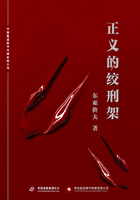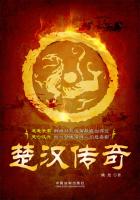They reached the wheat-barn and entered it.One end of the long structure was full of corn; the middle was whe re the reed-drawing was carried on, and there had a lready been placed in the re ed-press the ev ening before as many sheaves of wheat as would be sufficient for the women to draw from during the day.
“Why, here's Izz!”said Marian.
Izz it was, and she came forward.She had walked all the way from her mother's home on the p revious after noon, and, not deeming the d istance so great, had b een belated, arriv ing, ho wever, just before the s now began, and sleeping at the ale-ho use.The farmer had agreed with her mother at market to take her on if she came to-day, and s he had b een afraid to disappoint h im by delay.
In addition to T ess, Marian, and Izz, there wer e two wo men fro m a neighbouring village; two Amazonian sis ters, whom T ess with a start remembered as Dark Ca r the Quee n of Spades and her junior the Que en of Diamonds—those who h ad tried to f ight with h er in the midnight quar rel at Trantridge.They showed no recognition of her, and possibly had none, for they had been u nder the influence of liquor on that occasion, and were o nlytemporary sojourners th ere as here.They did all kinds of men's work by preference, including well-sin king, hedging, ditching, and ex cavating, with out any sense of fatigue.Noted reed-drawers were they too, and looked round upon the other three with some superciliousness.
Putting on their gloves all set to work in a row in front of the press, an erection fo rmed of two posts conn ected by a cross-beam, under which th e sheaves to be drawn from were laid ears outward, the beam being pegged down by pins in the uprights, and lowered as the sheaves diminished.
The day hardened in colour, the light coming in at the barn-doors upwards from the sn ow instead of downwar ds fro m the sky.The gir ls pulled h andful after handfu l fro m th e press; bu t b y reason of the presen ce of the str ange women, who were recounting scandals, Marian and Izz could not at first talk of old times as they wished to do.Presently th ey heard the muffled tread of a horse, and the farmer rode up to the barn-door.When he had dismounted he came close to Tess, and remained looking musingly at the side of her face.She had not turn ed at f irst, but his fix ed attitude led her to lo ok round, when she perceived that her employer was the nativ e of Trantridge from whom she had taken flight on the high-road because of his allusion to her history.
He waited till she had car ried the drawn bundles to the pile ou tside, when he said, “So you be the young woman who took my civility in such ill part?Be drowned if I didn't think you might be as soon as I heard of your being hired!Well, you thought you had got th e better of me the first time at the inn with your fancy-man, and the second time on the road, when you bolted; but now I think I've got the better of you.”He concluded with a hard laugh.
Tess, between the Amazons and the farmer like a bird caught in a clap-net, returned no answer, continuing to pu ll the straw.She co uld read character sufficiently well to kno w by this ti me tha t she had nothin g to fear fro m he r employer's gallantry; it was rather the tyranny induced by his mortification at Clare's treatment of h im.Upon the whole she preferred that sentiment in man and felt brave enough to endure it.
“You thought I was in love with'ee I suppose?Some women are such fools, to tak e every look as serious earnest.Bu t there's nothing like a winter afield for taking that nonsense out o'young wenches'heads; and you've signedand agreed till Lady-Day.Now, are you going to beg my pardon?”
“I think you ought to beg mine.”
“Very well—as you like.But we'll see which is master here.Be they all the sheaves you've done to-day?”
“Yes, sir.”
“Tis a very poor show.Just see what they've done over there”(pointing to the two stalwart women), “The rest, too, have done better than you.”
“They've all practised it before, and I have not.And I thought it made no difference to you as it is task work, and we are only paid for what we do.”
“Oh, but it does.I want the barn cleared.”
“I am going to work all the afternoon instead o f leaving at two as th e others will do.”
He looked sullenly at her and went away.Tess felt that she co uld not have come to a much worse place; but anything was better than gallantry.When two o'clock arrived the prof essional reed-drawers to ssed off the last half-pint in their flagon, put d own their ho oks, tied th eir last sheav es, and went away.Marian and Izz would h ave done likewise, but o n hearing that Tess meant to stay, to make up by longer hours for her lack of skill; they would not leave her.Looking out at the snow, which still f ell, Marian exclaimed, “Now, we've got it a ll to ou rselves.”And so at last the co nversation turned to th eir old experiences at th e dairy; and, of cou rse, the incidents of th eir af fection for Angel Clare.
“Izz and M arian, ”sa id Mrs.Angel Clare, with a dig nity which was extremely touching, seeing how very little of a wife she was:“I can't join in talk with you now, as I used to do, about Mr.Clare; you will see that I cannot; because, although he is gone away from me for the present, he is my husband.”
Izz was by nature the sauciest and most caustic of all the four girls who had loved Clare.“He was a very splendid lov er, no doubt, ”s he said; “but I don't think he is a too fond husband to go away from you so soon.”
“He had to go—he was obliged to go, to see about the land over there!”pleaded Tess.
“He might have tided'ee over the winter.”
“Ah—that's owing to an accident—a m isunderstanding; and we won'targue it, ”Tess answered, with tearfulness in her words, “Perhaps there's a good deal to be said for him!He did not go away, like some hu sbands, with out telling me; and I can always find out where he is.”
After this they continued for some long time in a reverie, as they went on seizing the ears of corn, drawing out the straw, gathering it un der their ar ms, and cutting off the ears with their bill-hooks, nothing sounding in the barn but the swish of the straw and the crunch of the hook.Then Tess suddenly flagged, and sank down upon the heap of wheatears at her feet.
“I knew you wouldn't be able to stand it!”cried Marian.“It wants harder flesh than yours for this work.”
Just then the farmer entered.“Oh, that's how you get on when I am away, ”he said to her.
“But it is my own loss, ”she pleaded.“Not yours.”
“I want it finished, ”he said doggedly, as he crossed the b arn and went out at the other door.
“Don't'ee mind him, there's a dear, ”said Mar ian.“I've worked her e before.Now y ou go and lie down there, an d Izz and I will make up y our number.”
“I don't like to let you do that.I'm taller than you, too.”
However, she was so overcome that she consented to lie down awhile, and reclined on a heap of p ull-tails—the refuse after the straight straw had been drawn—thrown up at the further side of the barn.Her succumbing had been as largely owing to agitation at reopening the subject of her sep aration from her husband as to the hard w ork.She lay in a state of percipience without volition, and the rus tle of the straw and the cutting of th e ears by the others had the weight of bodily touches.
She could hear from her corner, in addition to these noises, the murmur of their voices.She felt ce rtain that th ey were continu ing th e subject alr eady broached, but their voices were so low that she could not catch th e words.At last Tess grew more and more anxious to know what they were say ing, and, persuading herself that she felt better, she got up and resumed work.
Then Izz Huett broke down.She had walked more than a doz en miles the previous evening, had g one to bed at midnight, and had ris en again at fiveo'clock.Marian alone, thanks to her bottle of liquor and her stoutness of build, stood the strain upon back and ar ms without suffering.Tess urged Izz to leav e off, agreeing, as she felt better, to finish the day without her, and m ake equal division of the number of sheaves.
Izz accepted the of fer gratefully, and disappeared through the great doo r into the snowy track to her lodging.Marian, as was the case every afternoon at this time on account of the bottle, began to feel in a romantic vein.
“I should no t have thought it of h im—never!”she said in a dreamy tone.“And I loved him so!I didn't mind his having you.But this about Izz is too bad!”
Tess, in h er start at the words, narrowly missed cutting off a finger with the bill-hook.
“Is it about my husband?”she stammered.
“Well, yes.Izz said, ‘Don't'ee tell her; 'but I am sure I can't help it!It was what he wanted Izz to do.He wanted her to go off to Brazil with him.”
Tess's face faded as white as the scen e without, an d its curves straightened.“And did Izz refuse to go?”she asked.
“I don't know.Anyhow he changed his mind.”
“Pooh—then he didn't mean it!'Twas just a man's jest!”
“Yes he did; for he drove her a good-ways towards the station.”
“He didn't take her!”
They pulled on in silence till T ess, without any premonitory sy mptoms, burst out crying.
“There!”said Marian.“Now I wish I hadn't told'ee!”
“No.It is a very good thing that you have done!I have been living on in a thirtover, lackaday way, and have not seen what it may lead to!I ought to have sent him a letter oftener.He said I could not go to him, but he didn't say I was not to write as often as I liked.I won't dally like this any longer!I hav e been very wrong and neglectful in leaving everything to be done by him!”
The dim light in the barn grew d immer, and they could se e to work no longer.When Tess had reached ho me that evening, and h ad enter ed into th e privacy of h er l ittle wh itewashed chamber, she b egan impetuously writin g a letter to Clare.But falling into dou bt she cou ld not fin ish it.Afterwards shetook the ring from the ribbon on which she wore it next her heart, and retained it on her f inger all night, as if to fort ify herself i n the sensa tion that she was really the wife of this elusive lover of hers, who could pr opose that Izz should go with him abroad, so shortly after he had left her.Knowing that, how could she write entreaties to him, or show that she cared for him any more?
44
By the disclosure in the barn her thoughts were led a new in the direction which they had taken more than once of late—to th e d istant Emminster Vicarage.It was through her husband's parents that she had been charged to send a letter to Clare if she desired; and to write to them direct if in difficulty.But that sense of her having morally no claim upon him had always led Tess to suspend her impulse to send these notes; and to the family at the Vicarage, therefore, as to her own parents since her marriage, she was virtually non-existent.This self-effacement in both dir ections had been quite in consonance with h er independent character of desiring no thing by way of favour or p ity to wh ich she was no t entitled on a fair consideration of her deserts.She had set herself to stand or fall by her qualities, an d to waive such merely technical claims upon a strang e family as had been established for her by the fli msy fact of a member of t hat family, in a season of i mpulse, writing his name in a churchbook beside hers.
But now that she was stung to a fev er by Izz's tale there was a limit to her powers of r enunciation.Why had her husband not written to her?He had distinctly implied that he would at least let her know of the locality to which he had journeyed; but h e had not sen t a line to notify his address.W as he really indifferent?But was he ill?Was it fo r her to make some advance?Surely she might summon the cour age of so licitude, call at the Vicarage for intelligence, and express her grief at his silence.If Angel's father were th e good man she had heard him represented to be, he wou ld be able to en ter into her heart-starved situation.Her social hardships she could conceal.
To leave the farm on a week-day was not in her power; Sunday was th e only possible opportunity.Flintcomb-Ash being in the middle of the cretaceous tableland over which no railway had climbed as y et, it would be necessary to walk.And the distance being fifteen miles each way she would have to allow herself a long day for the undertaking by rising early.
A fortnight later, when the snow h ad gone, and had been fo llowed by a hard b lack frost, she took adva ntage of the sta te o f the roads to try the experiment.At four o'clock th at Su nday m orning she came downstairs and stepped out into the starlight.The w eather was still fa vourable, the ground ringing under her feet like an anvil.
Marian and Izz were much interested in her ex cursion, knowing that the journey concerned her husband.Their lodgings were in a cottage a little further along the lane, but they came and assisted T ess in her d eparture, and ar gued that she should dress up in her very prettiest guise to captivate the hearts of her parents-in-law; though she, knowing of the austere and Calvinistic tenets of old Mr.Clare, was indifferent, and even doubtful.A year had now elapsed since her sad marriage, but she had preserved sufficient draperies from the wreck of her then full wardrobe to clothe her v ery charmingly as a sim ple country girl with no pretensions to recent fashion; a so ft gray woollen gown, w ith white crêpe quilling against the p ink skin of her f ace and neck, and a b lack velvet jacket and hat.
“'Tis a thou sand pities y our husband can't see'ee now—y ou do look a real beau ty!”said Iz z Huett, rega rding Tess a s she stoo d on the threshold between the steely starlight withou t a nd the y ellow candlelight with in.Izz spoke with a magnanimous abandonment of h erself to the situation; she could not be—no woman with a heart bigger than a hazel-nut cou ld be—antagonistic to Tess in her presence, the influence which she exercised over those of her own *** being of a warmth and strength quite unusual, curiously overpowering the less worthy feminine feelings of spite and rivalry.
With a fin al tug and touch here, and a slight brus h there, they let h er go; and she was absorbed in to the pearly air of th e fore-d awn.They heard her footsteps tap along th e hard road as she stepped o ut to her fu ll pace.Even I zz hoped she w ould win, and, though w ithout any particular respect for her o wn virtue, felt glad that sh e had been preven ted wronging h er friend w hen momentarily tempted by Clare.
It was a year ago, all but a day, that Clare had married Tess, and only a few days less than a y ear that he had b een absent from her.Still, to start on a brisk walk, and on such an errand as hers, on a dry clear wintry morning, through the rarefied air of these chalky hogs'-backs, was no t depressing; and there is no doubt that her dream at starting was to win the heart of her mother-in-law, tell her whole h istory to th at lady, enlist her on h er side, and so gain b ack the truant.













